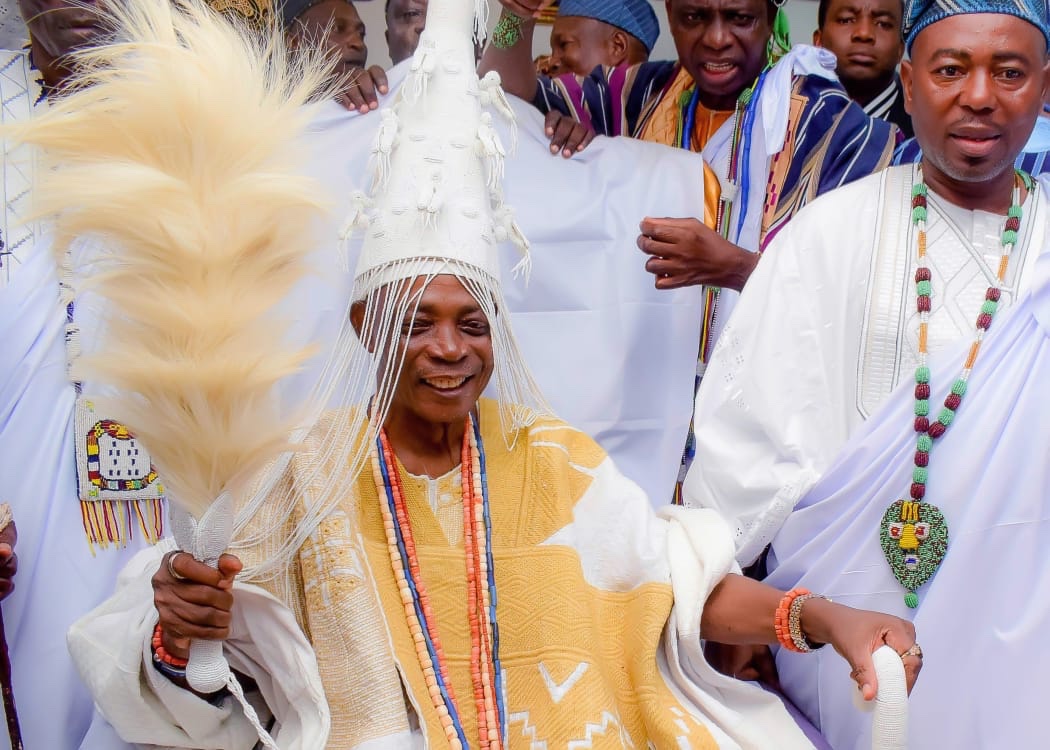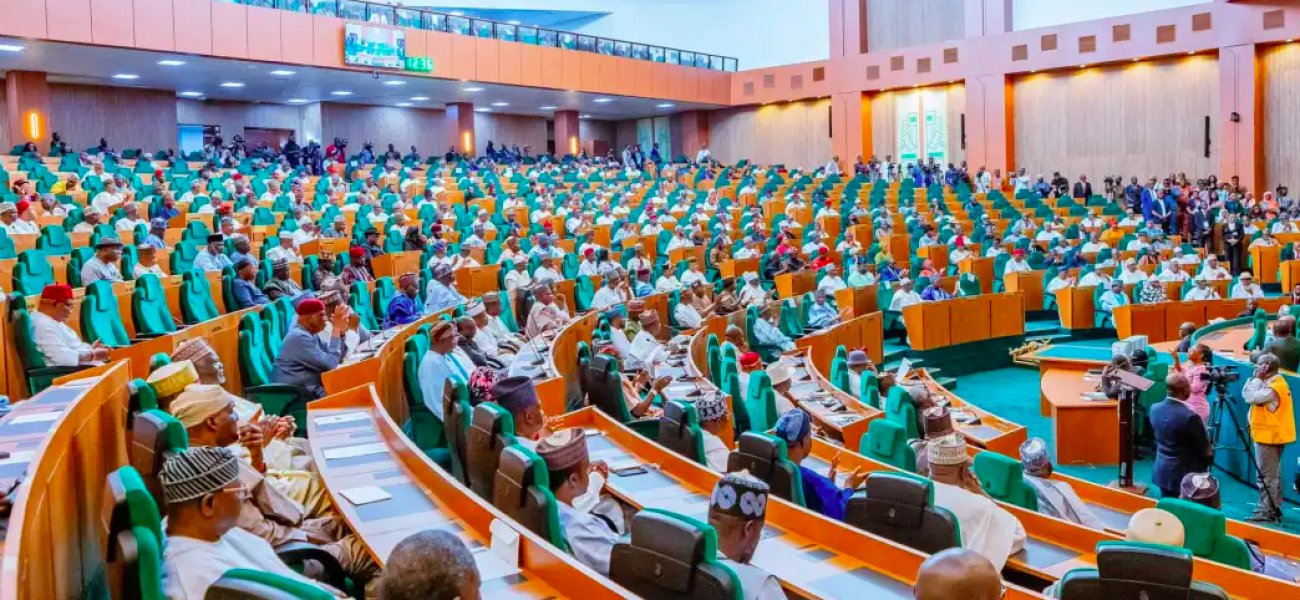
Olubadan Says Trump’s Threat to Invade Nigeria Over Christian Killings Is a Wake-Up Call for National Unity

The Olubadan of Ibadanland has described former U.S. President Donald Trump’s recent threat to “invade Nigeria” over the continued killing of Christians in the northern region as a serious wake-up call for Nigerians to unite, set aside ethnic and religious sentiments, and confront the growing menace of extremism head-on. His remark came amid global reactions to Trump’s fiery statement, which has stirred both outrage and reflection within political, religious, and diplomatic circles.
According to international reports, Trump made the statement during a closed-door conversation with some evangelical leaders, expressing deep concern over what he termed the “ongoing genocide of Christians” in Nigeria. He reportedly said that if the Nigerian government fails to stop the persecution of Christians, “the U.S. might have to take decisive action to protect innocent lives.” The comment, though controversial, has sparked a wave of reactions worldwide, especially across Nigeria where religious and ethnic violence has remained a major threat to national stability.
In response, the Olubadan warned that Nigeria cannot afford to ignore such an international rebuke. Speaking through his media aide, the revered monarch emphasized that Trump’s statement, whether viewed as an insult or a genuine concern, should be seen as a mirror reflecting the painful truth about the nation’s insecurity. He stressed that Nigeria has for too long allowed religious and ethnic divisions to fester, weakening the unity and moral conscience of the people.
“The comment by Donald Trump should not be dismissed with anger or denial. It should be seen as a wake-up call for every Nigerian to come together and put an end to the senseless killings in the North and all parts of the country,” the Olubadan stated. “We cannot continue to lose lives in the name of religion or ethnicity while the world watches us in disbelief. Nigeria must rise to prove that we are capable of solving our internal problems without external interference.”
The monarch further noted that the killings of Christians, Muslims, and innocent villagers by extremist groups such as Boko Haram and armed bandits have stained Nigeria’s image globally. He lamented that years of bloodshed have turned many communities into graveyards, with thousands displaced, and yet, the political class has often treated the matter with complacency. “Every drop of blood shed in this country weakens our humanity and undermines our nationhood. No nation can grow amidst so much hate and violence,” he added.
Trump’s threat to “invade” Nigeria if the killings persist has been described by some analysts as an overreach, but others see it as a reflection of global frustration with Africa’s largest democracy. The U.S. has long expressed concern about the persecution of Christians and religious minorities in Nigeria, with several reports from international human rights organizations highlighting the failure of successive governments to protect vulnerable populations. While the Nigerian government has often dismissed such reports as exaggerated, the reality on the ground tells a grim story of insecurity, displacement, and silent tears.
Political observers believe Trump’s remark, though provocative, has struck a chord at the heart of Nigeria’s fragile unity. For decades, the country has battled waves of religious extremism, from the Boko Haram insurgency in the northeast to the growing menace of armed herdsmen in the Middle Belt. Despite massive budget allocations to defense and numerous promises by successive administrations to end the violence, the killings have persisted, leaving millions hopeless.
Reacting to the controversy, some Nigerian leaders have criticized Trump’s statement as an insult to national sovereignty, while others argue that it reflects the frustration of the global community over Nigeria’s inability to secure its citizens. Human rights advocate Emmanuel Ogebe noted that while Trump’s tone was harsh, “the message is unfortunately true.” He said the killings of Christians and other minorities have continued unabated, and the government’s response has often been too little, too late. “The U.S. does not have the right to invade Nigeria, but Nigerians themselves must now wake up to the reality that we are losing our humanity,” Ogebe said.
Meanwhile, the Olubadan urged both Christian and Muslim leaders to preach peace, tolerance, and forgiveness, noting that religion should never be used as a weapon of division. He called on President Bola Tinubu’s administration to prioritize security and national reconciliation above politics, saying that Nigeria must never be allowed to degenerate into another Syria or Sudan. “No external power can fix Nigeria for us. The time to act is now. The bloodshed must stop. The hatred must end. Nigeria must be reborn through unity,” the monarch said passionately.
He also called on youths across the country to reject the manipulation of politicians who exploit ethnic and religious divisions for selfish gain. According to him, the younger generation holds the key to a new Nigeria, one that is built on justice, tolerance, and mutual respect. “No matter where we come from or what faith we profess, we are first Nigerians before anything else,” he declared. “Our diversity should be our strength, not our weakness.”
Diplomatic experts have warned that Trump’s statement, if left unaddressed, could trigger tension between Abuja and Washington. Nigeria, being one of America’s key allies in Africa, maintains significant military and economic ties with the U.S. The Nigerian Ministry of Foreign Affairs is reportedly studying the statement, and a formal response is expected in the coming days. However, the Olubadan’s intervention is being seen as an attempt to steer the national conversation away from anger and toward introspection.
Social media has also exploded with debates over Trump’s remarks, with Nigerians divided over whether to view the former president’s threat as a genuine call for action or an act of neo-imperial arrogance. Some Nigerians accused Trump of hypocrisy, citing America’s own history of violence and racial discrimination, while others agreed that his statement, though harsh, reflected the tragic truth about Nigeria’s worsening insecurity.
In the midst of the uproar, security experts have warned that Nigeria must take concrete action to restore confidence among citizens and the international community. They argue that years of policy failures, corruption, and neglect have created a vacuum that allows extremists to thrive. The killings of farmers, attacks on churches, and destruction of entire villages are symptoms of a much deeper problem — the collapse of local governance and the erosion of trust in the state.
The Olubadan concluded his message with a call to conscience: “We cannot continue to wait for foreign nations to remind us of our responsibilities to one another. Every Nigerian must become an agent of peace and a defender of unity. The world is watching us, but more importantly, God is watching us.”
As Trump’s statement continues to reverberate across diplomatic channels, it has undeniably opened a new chapter in Nigeria’s long struggle with religious violence and identity politics. Whether seen as a threat or a warning, one fact stands clear — the world has lost patience with Nigeria’s blood-stained divisions. And for a nation yearning for peace, the Olubadan’s voice of reason stands out as a reminder that the real war to be fought is not against any foreign power, but against hate, ignorance, and indifference within.

